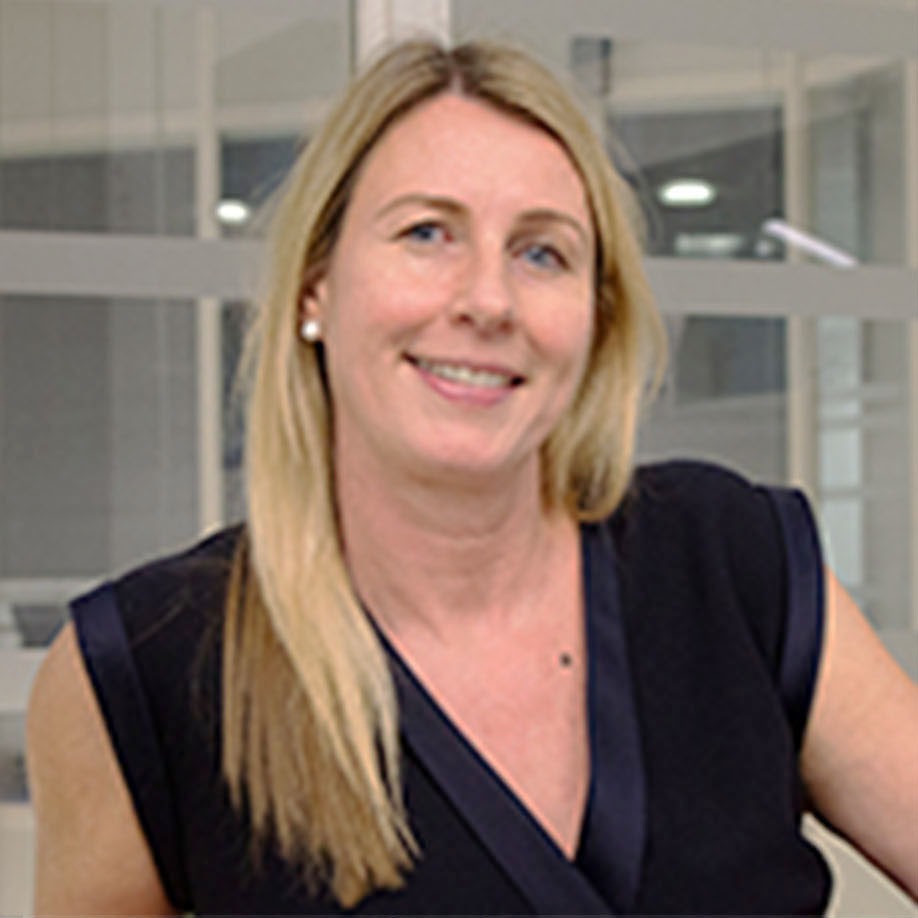“Let’s build the new together” – Kate Frankish at Sibos

For those who missed the Sibos Spotlight Session Digital Acceleration: Navigating the 'never normal' with our Director of Strategy Kate Frankish, here is a transcript of her talk.
My name is Kate Frankish – Director of Strategy at Pay.UK – and today I want to talk to you about the “new normal” but what do we actually mean by that?
I read a book last year called Post Corona: From Crisis to Opportunity by Scott Galloway, it’s a great read and I would recommend it.
In the book Scott analyses the enhanced speed of digital adoption driven by COVID and in particular how the big four tech companies are winning. One stat that really stood out for me was about Apple – it had taken 40 years to get Apple to a 1 trillion-dollar valuation in the first 6 months of 2020 they doubled it. That’s astounding.
As guidelines have shifted my normal has been changing almost weekly over the last two years, but the pandemic is only one piece of a complex puzzle, as our technology enables us to live more mobile connected lives than ever before.
Financial services has always been an industry that embraces change – however the pace of that change has dramatically accelerated with digitisation. In two decades we have gone from “cash is king”, to over 47% of surveyed US customers saying they would not shop at a store that didn’t have a contactless option.
Meanwhile, in the UK, we have seen online payments continue to grow by 20%, rebounding rapidly from the impact of the pandemic.
Open Banking payments are also taking off, more than 1 million are now made every month. But consumers don’t know what they are and the customer journeys are not always what they could be.
I recently bought tickets for Tina the musical on a theatre website and was excited to see the option to pay by bank transfer from Amex. I was taken to and authenticated within my Banks app – so far so good – but then the journey seemed to break.
After getting a message that my tickets were still in my basket, I checked my account and the funds had left. I’m sure this was an unusual technical glitch, but people won’t use these new payment methods if they don’t work first time.
But increasingly, transformation is accelerating to match expectation.
It took almost twelve years to stimulate Contactless adoption, yet during the pandemic we managed to increase the limit within months, and are set to do it again within the year. The pace creates huge opportunity for the business ready to harness it, but is also a source of anxiety for those seeking to rely on established business models. People and the economy adapt, but some are inevitably left behind.
The question is ‘how do we transform our businesses to harness change, rather than be transformed by it?’
Well I believe “The secret of change is to focus all of your energy not on fighting the old but on building the new’ – Socrates said that, and it has just as much relevance today as then.
So how do we go about that? One important factor is to understand that information, what we could call “actionable data”, isn’t just evidence of the change but a key driver, one that financial services is uniquely placed to harness.
Let me use our organisation, Pay.UK, as an example.
We provide clearing and settlement of payments between our customers who are all financial institutions of one sort or another. As such we have a better view than any single one of these institutions of where money is flowing, albeit within parameters of existing standards.
Within those confines we’ve already made significant steps forward. Initially by pioneering internet payments through the world’s first real-time system - Faster Payments, to now little more than a decade later delivering enhancements like the counter fraud technology Confirmation of Payee, which helps protect over a million people every single day.
But there’s more work to be done.
Other businesses hold different parts of the puzzle - transaction data, behavioural analytics, customer interactions – to realise the full power of “actionable data” a transformation needs to take place.
Fraud prevention is a case in point.
A peer of mine, Karen Baxter, who is ex police personnel and now MD of Intelligence for UK Finance, talks about the 80/20 rule, which says that while roughly 80% of banking customers will only ever use the system for legitimate purposes, that leaves as much as 20% that could be tempted to try and subvert those systems for their own financial gain.
To address a problem that vast, requires the industry to be able to examine payments transaction data in real time. This must of course be done in a careful way, protecting the identity and security of customers.
While we have made some progress, for example through the introduction of Mule tracking software, as a rule this is data we have access to as an industry but not yet data we can fully exploit to protect customers as a community.
But transformation is coming.
In the UK Open Banking and the shaping of the UK’s next generation standard for UK payments – based on ISO 20022 – is set to unlock the power of data for the payments’ community and society. It is now incumbent on businesses seeking to seize the information opportunity to make their strategic framework and information architecture transformation ready.
Tinkering round the edges is no longer enough the expectation of our customers is for secure, instant, global connectivity - organisations need to evolve, or risk being left behind.
At Pay.UK, we aspire to create value by providing access to the transaction and behavioural data our users and customers need to stay secure and thrive. But as a young business in a complex live environment, we quickly realised we needed a set of values and tools to guide us on the change journey.
That’s why we decided to build our strategy and transformation around harnessing this information opportunity.
At its heart is our deep insight programme which uses a wide range of internal and external sources to help us understand the major challenges and opportunities shaping the industry.
This allows us to make informed choices about what opportunities we will pursue and how.
Either as leaders where there is a valuable central role we can perform, enablers to the wider market, or facilitators, through for example the provision of new actionable data fields.
All of this activity will then inform the investments we make. Then, when we’ve made those decisions, we’re not going to keep them to ourselves, but publish them on our strategic roadmap. The digital transformation is a connected, global change, we must learn from each other and will not succeed in isolation.
One of the key themes we’re examining through this process is the Power of Trustworthy Data encapsulating our strategic commitment to delivering on the information opportunity.
We say trustworthy data, because ultimately information alone is not enough, we also need to maintain the trust of our customers and society.
That means not only ensuring provenance and reliability but increasingly facing ethical questions about how we use new data driven tools. Our answers to these can directed and informed by legislation and regulation, but fundamentally need to come from within.
How the rules and regulations are interpreted is key, and this must be done with society in mind. If we lose sight of that trust can be lost quickly, as several high-profile data incidents in recent years have proved.
In closing if I have one message today it’s “get ready” because the world doesn’t stand still.
Innovation goes both ways. As new products and services are developed they change the way people spend and behave and that in turn creates new expectations.
You don’t meet many horse and carriage salesmen nowadays similarly, in 10 years-time contactless payments could be initiated from a chip embedded in your arm.
One way you can begin is to join us in the ongoing conversation around the opportunities and challenges that harnessing trustworthy data provides and in particular the UK’s next generation payment standard.
Ultimately, all of our competitiveness relies on our transformation as businesses and an ecosystem to harness trustworthy data.
Fighting the old will get us nowhere let’s focus on building the new together.

